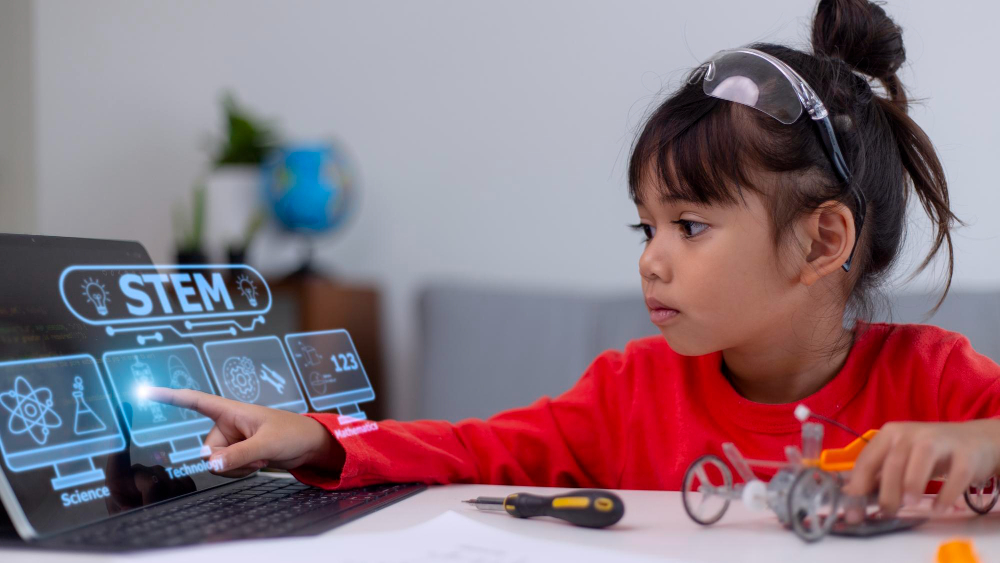
Thursday, 20Nov 2025
Adaptive Learning Technology Transforms Educational Personalisation: Creating Tailored Pathways for Every Student
Beyond One-Size-Fits-All Education Adaptive learning technology transforms…

Thursday, 20Nov 2025
Adaptive learning technology transforms how educational content responds to individual learner needs, creating unprecedented opportunities for personalized mastery across diverse student populations. Traditional educational approaches—standardized content delivery, fixed pacing, and uniform assessment—have long frustrated educators attempting to meet the needs of diverse learners. Research demonstrates that well-designed adaptive learning systems increase mastery achievement, reduce completion time, and improve learner satisfaction. These dramatic improvements stem from a fundamental shift: education that adjusts to the learner rather than forcing the learner to adjust to a rigid educational structure.
Conventional educational content creates several critical challenges:
These limitations create educational experiences that serve the statistical middle while failing learners at both ends of the preparedness spectrum.
Effective adaptation requires sophisticated content structure:
This structured knowledge architecture enables precise navigation through content based on individual learner needs.
Personalization requires understanding each student:
A higher education mathematics program implemented this approach and identified specific prerequisite gaps for 78% of struggling students, enabling targeted remediation that improved pass rates by 31%.
Content delivery adjusts based on learner needs:
These content adaptations ensure that each learner receives the right material at the right time for their specific needs.
Assessment becomes a learning tool rather than just evaluation:
A corporate training program implemented adaptive assessment and reduced unnecessary content exposure by 47% while maintaining or improving mastery outcomes.
School environments benefit from specific adaptation approaches:
College and university contexts present unique opportunities:
Workplace learning benefits from efficiency-focused approaches:
A retail organisation implemented adaptive product knowledge training and reduced average completion time by 42% while improving assessment scores by 18%.
Credential preparation benefits from targeted approaches:
Adaptive systems implement mastery learning at scale:
These principles ensure that all learners achieve mastery, though their paths and timelines may differ.
Effective adaptation builds learning self-awareness:
These metacognitive elements help learners become more self-directed and effective in their educational approaches.
Adaptive systems must maintain learner investment:
Knowledge construction requires active processing:
These constructivist elements ensure that adaptation focuses on deep understanding rather than just procedural knowledge.
Effective adaptation improves learning economics:
Ultimate effectiveness appears in learning outcomes:
These outcome measures demonstrate whether adaptation is creating deeper, more durable learning.
Subjective experience influences continued engagement:
Effective adaptation should serve diverse learners:
These equity measures ensure that adaptive systems fulfill their promise of serving all learners effectively.
Adaptive systems require sophisticated content:
These content development approaches balance the additional creation effort with scalable reuse and effectiveness.
Personalization requires careful data handling:
These ethical approaches ensure that adaptation serves learners without compromising privacy or autonomy.
Adaptive learning must connect with broader ecosystems:
These integration approaches ensure that adaptive learning becomes part of a coherent educational experience rather than an isolated component.
Human educators remain essential partners:
As technology and learning science continue to evolve, several emerging approaches show promise:
Artificial intelligence is transforming personalization capabilities:
These technologies extend adaptation beyond rule-based systems to more sophisticated, responsive approaches.
Personalization increasingly includes collaborative elements:
These social elements recognise that effective learning often happens through interaction, not just content consumption.
Next-generation systems will adapt across modalities:
These multimodal approaches ensure that adaptation considers the complete learning context, not just content difficulty.
Adaptation increasingly spans extended time periods:
These extended approaches transform adaptation from course-level optimisation to lifelong learning support.
Adaptive learning technology represents more than just an incremental improvement in educational delivery—it offers a fundamental rethinking of how learning experiences can be structured around individual needs rather than statistical averages. By providing the right content, at the right level, in the right way, for each learner, these systems create unprecedented opportunities for universal mastery.
The most effective educational programs recognise that learner variability is the rule, not the exception. By implementing sophisticated adaptive learning approaches, these programs ensure that each student receives a personalised educational experience that maximises their potential for success.

Thursday, 20Nov 2025
Beyond One-Size-Fits-All Education Adaptive learning technology transforms how educational content responds to individual learner needs, creating unprecedented opportunities for personalized mastery across diverse student populations. Traditional educational approaches—standardized content delivery,…
Read More line_end_arrow_notch
Monday, 17Nov 2025
Reimagining Scientific Discovery STEM eLearning innovations transform how students engage with scientific and mathematical concepts, creating unprecedented opportunities for deeper understanding and authentic inquiry. Traditional science and mathematics education—textbook explanations,…
Read More line_end_arrow_notch
Thursday, 13Nov 2025
Beyond Checkbox Compliance Compliance training strategies transform how insurance organizations approach regulatory requirements, converting what many view as burdensome obligations into operational advantages. The insurance industry faces one of the…
Read More line_end_arrow_notch